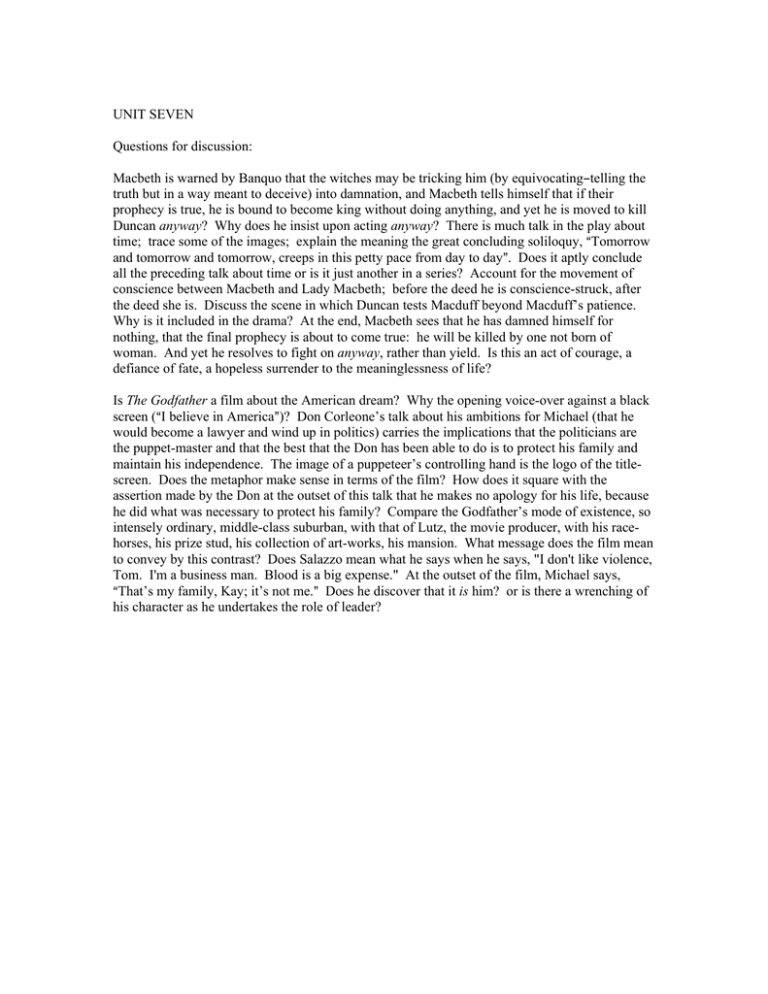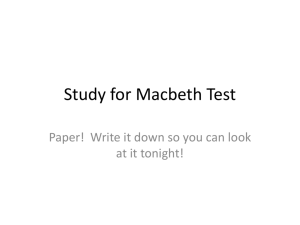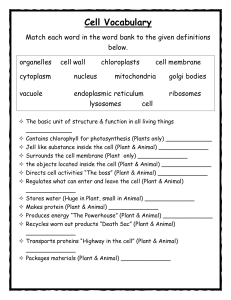UNIT SEVEN Questions for discussion: Btelling the
advertisement

UNIT SEVEN Questions for discussion: Macbeth is warned by Banquo that the witches may be tricking him (by equivocatingBtelling the truth but in a way meant to deceive) into damnation, and Macbeth tells himself that if their prophecy is true, he is bound to become king without doing anything, and yet he is moved to kill Duncan anyway? Why does he insist upon acting anyway? There is much talk in the play about time; trace some of the images; explain the meaning the great concluding soliloquy, ATomorrow and tomorrow and tomorrow, creeps in this petty pace from day to day@. Does it aptly conclude all the preceding talk about time or is it just another in a series? Account for the movement of conscience between Macbeth and Lady Macbeth; before the deed he is conscience-struck, after the deed she is. Discuss the scene in which Duncan tests Macduff beyond Macduff’s patience. Why is it included in the drama? At the end, Macbeth sees that he has damned himself for nothing, that the final prophecy is about to come true: he will be killed by one not born of woman. And yet he resolves to fight on anyway, rather than yield. Is this an act of courage, a defiance of fate, a hopeless surrender to the meaninglessness of life? Is The Godfather a film about the American dream? Why the opening voice-over against a black screen (AI believe in America@)? Don Corleone’s talk about his ambitions for Michael (that he would become a lawyer and wind up in politics) carries the implications that the politicians are the puppet-master and that the best that the Don has been able to do is to protect his family and maintain his independence. The image of a puppeteer’s controlling hand is the logo of the titlescreen. Does the metaphor make sense in terms of the film? How does it square with the assertion made by the Don at the outset of this talk that he makes no apology for his life, because he did what was necessary to protect his family? Compare the Godfather’s mode of existence, so intensely ordinary, middle-class suburban, with that of Lutz, the movie producer, with his racehorses, his prize stud, his collection of art-works, his mansion. What message does the film mean to convey by this contrast? Does Salazzo mean what he says when he says, "I don't like violence, Tom. I'm a business man. Blood is a big expense." At the outset of the film, Michael says, AThat’s my family, Kay; it’s not me.@ Does he discover that it is him? or is there a wrenching of his character as he undertakes the role of leader?





